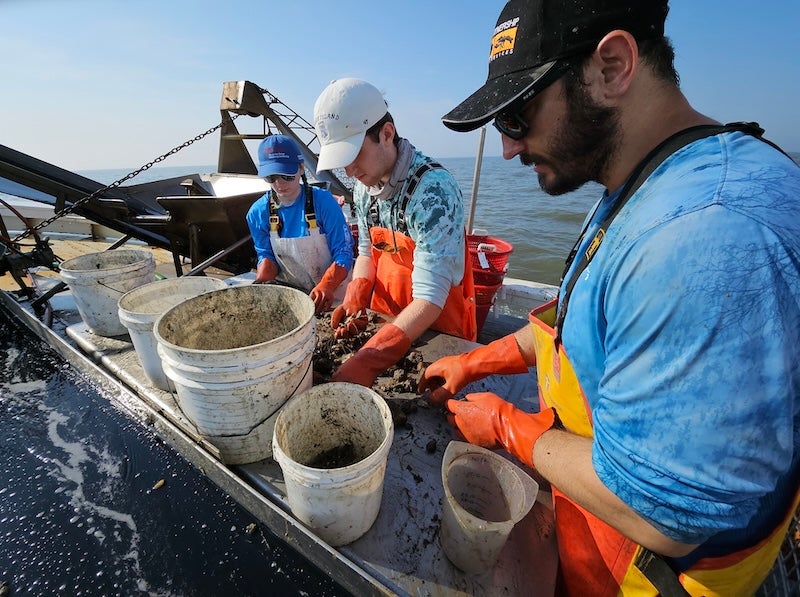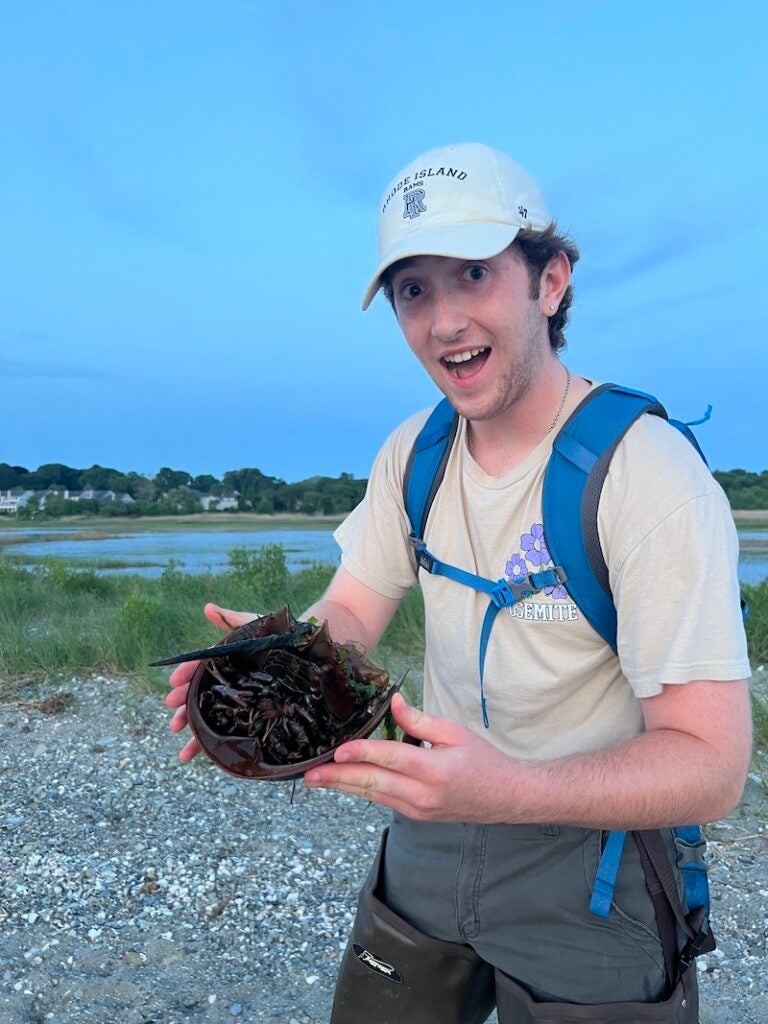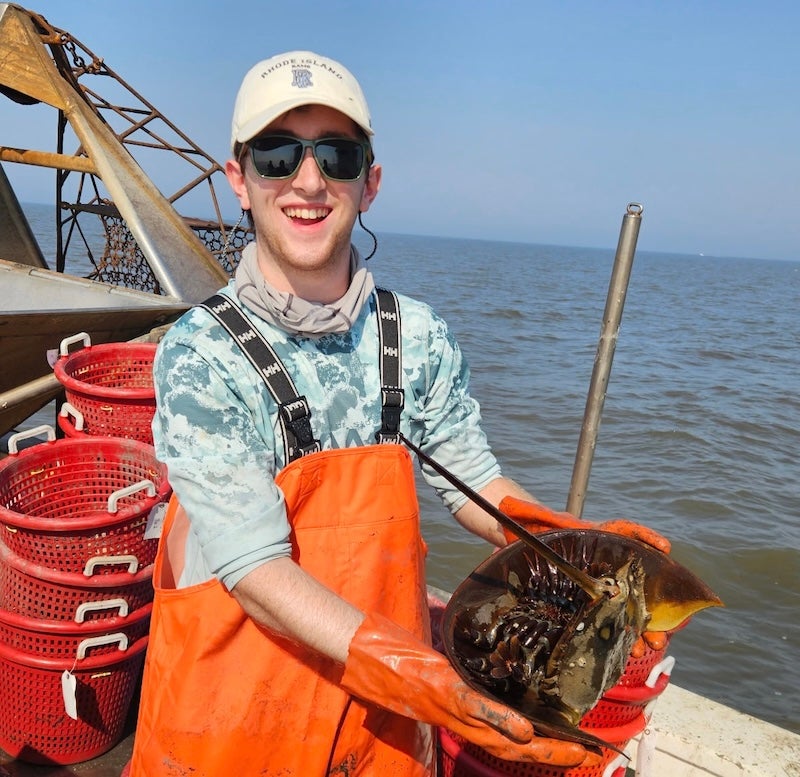Nick O’Connor, a marine biology and aquaculture and fisheries science double major from Burlington, Connecticut, is passionate about advancing field survey methodology for fisheries. This summer, he’s getting hands-on experience doing so thanks to the National Science Foundation (NSF) Research Experiences for Undergraduates program, which supports intensive research by undergraduate students in any NSF-funded area of research.
O’Connor is spending ten weeks at Rutgers University’s Haskin Shellfish Research Laboratory in Port Norris, New Jersey. The lab is dedicated to research, education, and extension in support of sustainable shellfish and finfish resources and fisheries, and O’Connor says he is excited about contributing to a new and upcoming survey technique there.
“I have primarily been working independently on my own research project,” he says, “utilizing camera mounted fish traps to gauge changes in fish distributions, particularly commercially important structure-associated fish such as black sea bass.”

He’s also helped survey wild oysters aboard a commercial oyster vessel and assisted with tagging surf clams and ribbed mussels at the New Jersey Aquaculture Innovation Center. All in all, he says his experience so far has been nothing short of “life-changing.”
“Experiencing a totally new research environment, not just at a marine field station but with a diverse cast of interns and researchers, has been really rewarding,” O’Connor says. “Everyone has been beyond supportive of my goals and research.”
O’Connor notes that participation in the NSF program has helped him find his niche within marine research. “I’ve thoroughly enjoyed working on a project that I see myself pursuing not just into my senior year at URI but into graduate school and beyond,” he says. “This internship has instilled in me a deep passion for fisheries research, and through the connections and mentorship I receive, I feel well-prepared to contribute to this growing field and bring about meaningful change.”
Last summer, O’Connor completed a College of the Environment and Life Sciences (CELS) Summer Research Fellowship with the Audubon Society of Rhode Island. As he assessed the usage of atypical spawning sites by Atlantic horseshoe crabs, he says he gained invaluable skills with marine research methods–and enjoyed working with a species he is “incredibly passionate” about.
“I cultivated skills in critically analyzing scientific papers, developed research methods, and learned important fieldwork skills such as using a quadrant and transect tape,” he says of the fellowship. “And working with this species really strengthened my passion for marine science.”

While his position with the NSF program is off-campus, O’Connor credits the support he’s received on-campus as vital to his success. “CELS has been instrumental in helping me get to this position in my undergraduate career,” O’Connor says. “Being a part of such supportive groups, including the CELS Peer Mentor Program and CELS Ambassadors, has allowed me to connect with faculty and peers that have gone above and beyond to help me grow personally and professionally.”
Now on the cusp of wrapping up his undergraduate years, O’Connor says his best advice to students beginning their college career is to apply for opportunities. “Whether it be an internship with a research lab, or fellowship with a state organization, gaining these experiences as an undergrad will help shape the trajectory of your career,” he says. “You might learn that you absolutely love a certain area of work, and equally important, you might learn that you don’t want to pursue a certain area. In the end, experiential learning is there to help you discover your passions, clarify your goals, and forge a future for yourself.”

